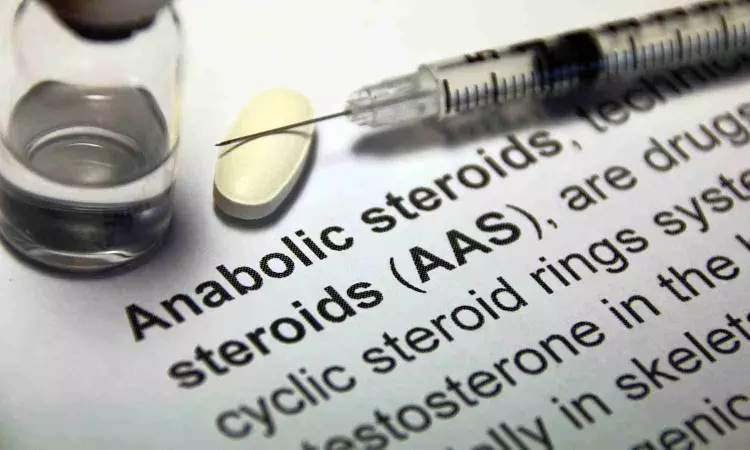- Home
- Medical news & Guidelines
- Anesthesiology
- Cardiology and CTVS
- Critical Care
- Dentistry
- Dermatology
- Diabetes and Endocrinology
- ENT
- Gastroenterology
- Medicine
- Nephrology
- Neurology
- Obstretics-Gynaecology
- Oncology
- Ophthalmology
- Orthopaedics
- Pediatrics-Neonatology
- Psychiatry
- Pulmonology
- Radiology
- Surgery
- Urology
- Laboratory Medicine
- Diet
- Nursing
- Paramedical
- Physiotherapy
- Health news
- Fact Check
- Bone Health Fact Check
- Brain Health Fact Check
- Cancer Related Fact Check
- Child Care Fact Check
- Dental and oral health fact check
- Diabetes and metabolic health fact check
- Diet and Nutrition Fact Check
- Eye and ENT Care Fact Check
- Fitness fact check
- Gut health fact check
- Heart health fact check
- Kidney health fact check
- Medical education fact check
- Men's health fact check
- Respiratory fact check
- Skin and hair care fact check
- Vaccine and Immunization fact check
- Women's health fact check
- AYUSH
- State News
- Andaman and Nicobar Islands
- Andhra Pradesh
- Arunachal Pradesh
- Assam
- Bihar
- Chandigarh
- Chattisgarh
- Dadra and Nagar Haveli
- Daman and Diu
- Delhi
- Goa
- Gujarat
- Haryana
- Himachal Pradesh
- Jammu & Kashmir
- Jharkhand
- Karnataka
- Kerala
- Ladakh
- Lakshadweep
- Madhya Pradesh
- Maharashtra
- Manipur
- Meghalaya
- Mizoram
- Nagaland
- Odisha
- Puducherry
- Punjab
- Rajasthan
- Sikkim
- Tamil Nadu
- Telangana
- Tripura
- Uttar Pradesh
- Uttrakhand
- West Bengal
- Medical Education
- Industry
Real-world evidence links long-term use of oral and inhaled steroids to adrenal insufficiency

Individuals taking steroid tablets for more than 3 months are over 6 times more likely to be diagnosed with adrenal insufficiency than those treated with non-steroidal anti-inflammatory drugs, according to research presented at the first Joint Congress between the European Society of Paediatric Endocrinology (ESPE) and the European Society of Endocrinology (ESE).
In addition, they have a greater risk of being hospitalised for adrenal insufficiency, while long-term users of inhaled steroids have an increased risk of developing adrenal insufficiency but without any increase in the number of hospitalisations. The findings highlight the importance of using an appropriate substitute treatment, such as hydrocortisone, in order to prevent the onset of adrenal insufficiency.
Steroids, also called corticosteroids, are anti-inflammatory medicines used to treat various conditions such as asthma, chronic obstructive pulmonary disease (COPD), allergies, arthritis and autoimmune diseases. When taking these widely-prescribed medicines, such as prednisolone, for more than three weeks, the dose has to be reduced gradually because abruptly stopping them can cause the adrenal gland to stop producing the stress hormone cortisol — a condition known as adrenal insufficiency.
In this study, Dr Patricia Vaduva and colleagues from France examined 558,667 individuals who used steroid tablets or inhaled steroids for 3 months to 5 years, and compared them to individuals treated only with non-steroidal anti-inflammatory drugs (NSAIDs). The researchers found that those who used steroid tablets for more than 3 months were over 6 times more likely to be diagnosed with adrenal insufficiency and over 3 times more likely to be hospitalised for adrenal insufficiency than those who only used NSAIDs. Similarly, those who took inhaled steroids had a 55% higher risk of being diagnosed with adrenal insufficiency, but did not have an increased risk of being hospitalised for the same condition.
“Our real-world study is the largest to investigate the association between long-term corticosteroid use and adrenal insufficiency,” said lead author Dr Patricia Vaduva from the Rennes University Hospital in France.
“The impact of corticosteroids on the pituitary gland — located in the brain and which regulates adrenal gland cortisol secretion — has been previously looked at, but studies on the incidence of adrenal insufficiency following the chronic use of both oral and inhaled corticosteroids are practically lacking.”
Dr Vaduva added: “Our findings show that even low doses of inhaled steroids can lead to adrenal insufficiency, contrary to what one might have thought until now. This information should be widely spread across the medical community.”
“The presence of synthetic corticosteroids in the blood can cause the adrenal glands to go into a ‘sleep-like’ state, where they reduce or stop producing cortisol. Therefore, when long-term corticosteroid therapy is stopped suddenly, a substitutive treatment with a naturally-occurring steroid like hydrocortisone is needed to avoid adrenal insufficiency and its potential life-threatening consequences. This will allow patients to be safe and will prevent numerous hospitalisations,” said Dr Vaduva.
Real-world evidence links long-term use of oral and inhaled steroids to adrenal insufficiency Meeting
Joint Congress of ESPE and ESE
Dr Kamal Kant Kohli-MBBS, DTCD- a chest specialist with more than 30 years of practice and a flair for writing clinical articles, Dr Kamal Kant Kohli joined Medical Dialogues as a Chief Editor of Medical News. Besides writing articles, as an editor, he proofreads and verifies all the medical content published on Medical Dialogues including those coming from journals, studies,medical conferences,guidelines etc. Email: drkohli@medicaldialogues.in. Contact no. 011-43720751


